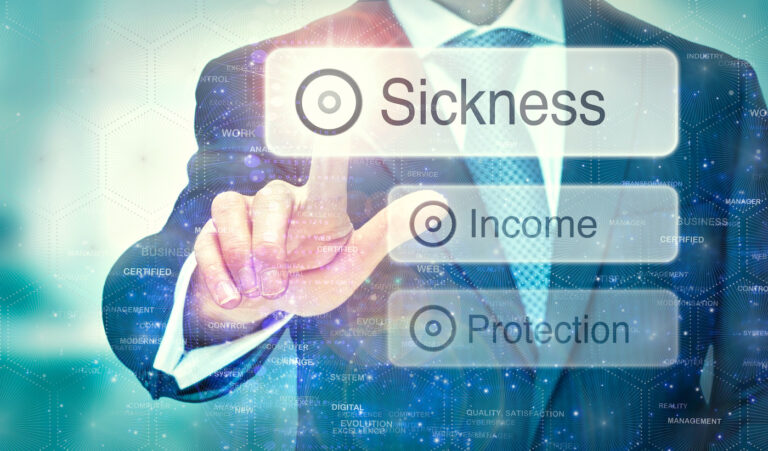New research from GRiD, the group risk sector’s industry body sector, shows that only a third of employers offer their entire workforce financial support in the event of ill health, injury or death. At its most basic, Group Income Protection (GIP) provides insured employees with vital financial protection by paying a percentage of their salary if they can’t work due to long-term illness or injury.
But a good GIP policy can actually offer so much more. Vocational rehabilitation and absence management support can help prevent staff going sick in the first place. It can also help them return to work faster and more safely if they do. This is particularly true for SMEs (which account for 99% of the business population in the UK), who have fewer employees to fall back on and can therefore often be more vulnerable to long-term sickness than larger organisations.
 In addition, GIP policies offering access to added-value health and wellbeing services, such as access to remote GPs and mental health support, can attract and retain staff in the competitive post-COVID hiring landscape.
In addition, GIP policies offering access to added-value health and wellbeing services, such as access to remote GPs and mental health support, can attract and retain staff in the competitive post-COVID hiring landscape.
If you’re an SME looking into including GIP as part of your employee benefits package, Glenn Thompson, Chief Distribution Officer at Unum UK, shares his top 5 considerations.
- Experience
The longer an insurer has offered GIP, the more experienced they are in dealing with claims.
Also, do they have a good track record across different industries, and have they worked with companies of all sizes — from SMEs to global corporates? You might also consider how specialised they are in employee benefits, or whether their focus is split across other forms of insurance, such as car cover or house protection.
- Rehabilitation
If you ask most people when GIP rehabilitation support should kick in, they’d probably reply: “Once they’re signed off sick, right?”
Wrong. Actually, access to early rehabilitation — as soon as an employee starts struggling, and way before they need to claim — can help keep an employee in work. And if they do go off sick, early intervention from your GIP provider can help minimise how long they’re out of work.
SMEs may lack time and resources to dedicate to long-term sickness or absence management, while large firms may have multiple people dealing with just this. That’s why external experts on hand with your GIP policy can help both employers and employees.
In particular, in-house expertise can be doubly valuable. Specialists working together provide a truly collaborative service, improving employee experience of claims or rehabilitation. In-house teams can also even cut referral times compared with insurers who outsource.
- Return to work services
A big test of an insurer’s rehabilitation is the proportion of employees they help return to work (or stay in work). A good track record in this area may indicate fantastic absence management and rehabilitation services.
As mentioned, with SMEs having fewer staff, sickness absence can hit harder than at larger rivals. An insurer with a high return-to-work success rate can therefore benefit SMEs.
It’s also worth checking the rehabilitation team’s success in reducing the duration of claims. Does a referral to them reduce the length of time an employee is too unwell to work, compared to no referral? Rehabilitation aims to build a successful, sustainable return to health and work as soon as the employee is well enough. The shorter the time someone is unwell, the less daunting it can feel for them to return to the workplace.
How you go about getting someone back to their job is really important — and can have a major impact on employees’ ongoing wellbeing. Personalised, graduated return-to-work plans help ease employees back into work and can reduce ‘rebound’ absences (where people go back too soon and see a recurrence of their symptoms).
- Preventative services
Employers can do many things to improve employees’ health and wellbeing at work. By helping people remain well, they benefit their company too.
Yet it might not be immediately obvious where to start when building a wellbeing strategy to help keep employees well and at work. If you’re a small business building one from scratch, it can be even harder.
So, when considering a GIP provider, ask if they offer line manager and HR training courses to help in this area. Sometimes, these courses offer CPD-accreditation on topics such as mental health, stress, cancer in the workplace, musculoskeletal disorders and more.
Some GIP providers also examine at your entire wellbeing strategy for your workforce from end to end and suggest improvements — or help you build one from scratch to support your employees if you don’t yet have one.
- Added value services
Many GIP policies offer access to a wealth of added-value services. These might include remote GPs, access to mental health support, specialist cancer support and Employee Assistance Programmes, which can help people deal with anything from life’s simple questions to more complex worries.
Such services can help employees prioritise their own wellness, so it’s worth taking time to explore them. They could truly benefit your workforce’s health, wellbeing and work/life balance. They can also support with attracting and retaining staff.
Ultimately, illness and injury can happen to members of your workforce. While it may be more likely to happen at a larger company simply because there are more people and therefore more chance of someone developing an illness or injury, SMEs are not immune.
With GIP providing not just a payment to reduce the financial impact of long-term absence but also valuable health and wellbeing tools, it can really benefit you as an SME as well as your employees.


